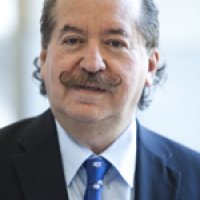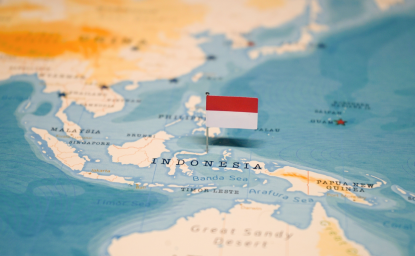In Venezuela these days, no one is safe, especially local and foreign business people.
BY PETER WILSON
CARACAS -- David Troup (not his real name) knows the drill when he goes to Caracas. The 40-year-old financial analyst always takes a vetted taxi service, which offers armored cars and armed drivers.
He spends almost all of his time at his hotel or the office, and doesn’t make a point of going out by himself. He dresses down, and leaves his watch and jewelry at home. He doesn’t answer his iPhone when he’s out in traffic, preferring to keep it under wraps.
And he counts the days until he leaves.
“Caracas is a war zone,” he says. “I just want to make sure that I’m not another statistic.”
Troup has reason to worry.
“Caracas is the most dangerous capital city in the world, more dangerous than Baghdad,” says Roberto Briceño Leon, who heads the Observatorio Venezolano de Violencia, a non-government watchdog that monitors crime in the country.
According to figures compiled by the Observatorio, more than 19,000 murders were committed last year in the South American country of 28 million. The number is higher than all of those committed in the United States and the European Community combined.
Of those about a third occurred in Caracas. The carnage is so bad that some weekends theCaracas morgue is literally overflowing with corpses.
Venezuela’s murder rate is now 67 per every 100,000 inhabitants, only outstripped by those ofHonduras and El Salvador in the hemisphere. And Caracas´ rate is approximately 210 per 100,000.
More than 60 percent of all murder victims are shot five times or more, and arrests are only made in eight out of every 100 murders.
No one seems safe. Since the start of the year, hoodlums assaulted the governor of the state of Monagas who belongs to President Hugo Chavez’s ruling party. Mexico’s Ambassador to Venezuela Carlos Pujalte and his wife were kidnapped in late January, and released after a ransom was paid.
Criminals have stormed movie theaters in the middle of films to rob patrons. And in early March, a thug posed as a patient in a hospital, and subsequently barged into an operating room to rob at gunpoint doctors and nurses performing a surgery.
“This is what happens when you have a government that decides not to enforce the laws,” says Briceño Leon.
Crime is a perennial problem in Venezuela but in recent years has grown worse. When President Hugo Chavez was first elected in 1998, the country’s murder rate was 20 per 100,000. The upswing in violence is rooted in a number of factors, including the entrance of Colombian drug lords who have set up shop in the country.
Crime has also become more organized and lethal, Briceño Leon says. Chavez’s policies have also facilitated the increase. The president has taken over a number of local police forces, while weakening state governments, especially those whose leaders belong to the opposition.
Caracas seems to be under siege sometimes, and kidnappings are soaring.
Billboards on the main highways leading to the city urge citizens to call the police and not pay ransom in case a loved one is kidnapped. The billboards feature a smiling young man who is shown being followed by a line of thugs all in black.
In 1998, the country registered 52 kidnappings, mostly along the Colombian border, according to government figures.
Last year, the official tally was 1,200 but Briceno says many go unreported by victims. He estimates that the real number is closer to 16,000.
“Kidnappings have soared as criminals have realized it is an easier way to get money,” he explains. “If you rob someone you have to sell whatever you rob, like a car, or motorcycle or jewelry. In a kidnapping you’re dealing with cash. It’s just easier.”
Venezuelans face two kinds of kidnappings, so called secuestros express (express kidnappings) where the victims are randomly selected and usually just held overnight before being ransomed for a small sum, and kidnappings of high value individuals who are held for a longer period of time and usually returned after large sums of money are paid.
Alberto Gutierrez (not his real name) paid an undisclosed amount to rescue his son who was kidnapped three years ago. A successful businessman in the central city of Maracay, Gutierrez was subsequently kidnapped late last year when he was leaving his house in the country. Gunmen seized him at gunpoint from his car. He was held for three days.
The police successfully liberated him in a raid that killed three of his kidnappers, one of whom was a distant neighbor.
“I have always treated my employees well, and I work with the poor, but that doesn’t matter at all these days,” he says. “By paying a ransom for my son, I may have encouraged them to come after me.”
One by-product of the uptick in violent crime has been a boom in Venezuela’s security industries.
Newspapers are packed with ads for security personnel. And shops armoring cars are doing a booming trade.
“We noticed that the upswing began in 2003,” said an executive at Caracas-based Blindcorp who spoke on condition of anonymity as he fears retaliation. “And it just keeps getting better. This year, our sales have already grown 30 percent.”
Blindcorp specializes in installing bullet proof windows and steel protection to guard occupants against attacks and possible kidnappings. The cost per vehicle is between $20,000 and $30,000, the Blindcorp executive says, depending on the vehicle and the type of materials used.
Eighty percent of all clients are private Venezuelan businessmen and their families but embassies, international companies and government agencies are also clients, he said.
Crime promises to be a major issue in this year’s presidential race, as it consistently ranks as Venezuelans’ top concern. The government says the situation is getting better but few believe them. Venezuelan President Hugo Chavez‘s challenger Henrique Capriles Radonski has promised to tackle crime by spending more money on policemen salaries and purging corrupt officers from police forces. He has also backed opposition calls for a disarmament campaign.
Capriles knows firsthand of the danger. During a campaign stop last week in a Caracas working class neighborhood, government supporters shot at some of Capriles’s supporters.
To avoid being a victim, Briceño Leon says it is important to avoid poorer, working class neighborhoods and flashing signs of wealth. One shouldn’t take taxis from the streets, and avoid riding with one’s windows down.
If one goes out at night, it’s best to go in a caravan with friends to avoid problems.
Anna Leon, who works for the Interior Ministry, followed all of the rules, and was still robbed at gunpoint in the middle class neighborhood of Montalban.
“Montalban used to be a good place to live and people were out in the street until all hours of the night,’’ she says. “Not any more. Montalban’s streets are empty once the sun goes down. We are living in a prison, being held hostage by criminals.”
Article can be found here.





